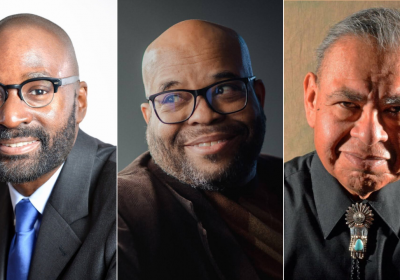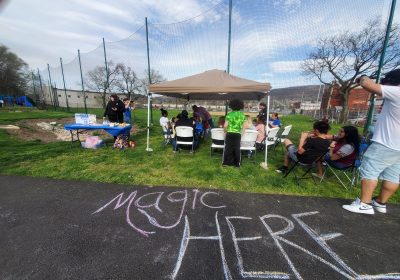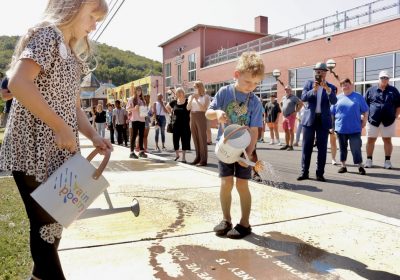By Karen Price
More than a dozen people gathered in a downstairs room at Pittsburgh’s City of Asylum, excited to talk about their work in the humanities during a focus group session for the PA Humanities Discovery Project, done in partnership with Drexel University.
They shared stories with researchers and one another over the next hour that went well beyond a discussion of job duties and definitions. As they described why they do humanities work and its impacts and challenges, they discussed the need to create conversation, to help people to know their stories matter, to be able to draw similarities between one another and our past, to encourage people to look beyond taught and told histories, and to create physical and socio-cultural spaces where people feel like they belong.
This work, one participant said, is my voice. It is how I exist in this world. I do it to save my life.
“We’ve seen across the board how personal the ‘why’ of the work is,” PA Humanities senior program officer Jen Danifo said. “When asked the motivation question people often refer to their own experiences and wanting to better understand them or share them with the world.”
PA Humanities launched the PA Humanities Discovery Project last fall with Drexel University. It’s an ambitious project that will tell the story of humanities work (and workers) across the state for the very first time in such detail, work that is critical in keeping people connected and inspired while encouraging resilience and recovery in the wake of the covid-19 pandemic. The project will also help to build a more inclusive and connected community for sharing, learning and advocacy.
“The survey looked at broad themes, and now the focus groups were really about digging in on the particulars. Taken together, the two things are meant to give an overall portrait of what’s going on in different communities across the Commonwealth.”
PA Humanities development and research manager Nick Crosson
The first part of the PA Discovery Project was a statewide survey, to which 541 people responded. The focus groups are the second part of the project – garnering personal reflections through the series of eight distinct focus groups – including rural residents , BIPOC residents, Scranton-area residents, Spanish-speaking Pennsylvanians, Black cultural workers in Southeast PA, youth, and humanities workers at museums, libraries and historical organizations – held virtually or in person across the state. Focus group topics included whether individuals use the word “humanities” in their work, what motivates them to do the work, why they consider their work to be important, what impacts they believe it can have, how the events of the last three years have impacted the work, how organizations can gain better support, and what the future of cultural and humanities experiences and organizations might look like five to 10 years down the road.
“The survey looked at broad themes, and now the focus groups were really about digging in on the particulars,” PA Humanities development and research manager Nick Crosson said. “Taken together, the two things are meant to give an overall portrait of what’s going on in different communities across the Commonwealth.”
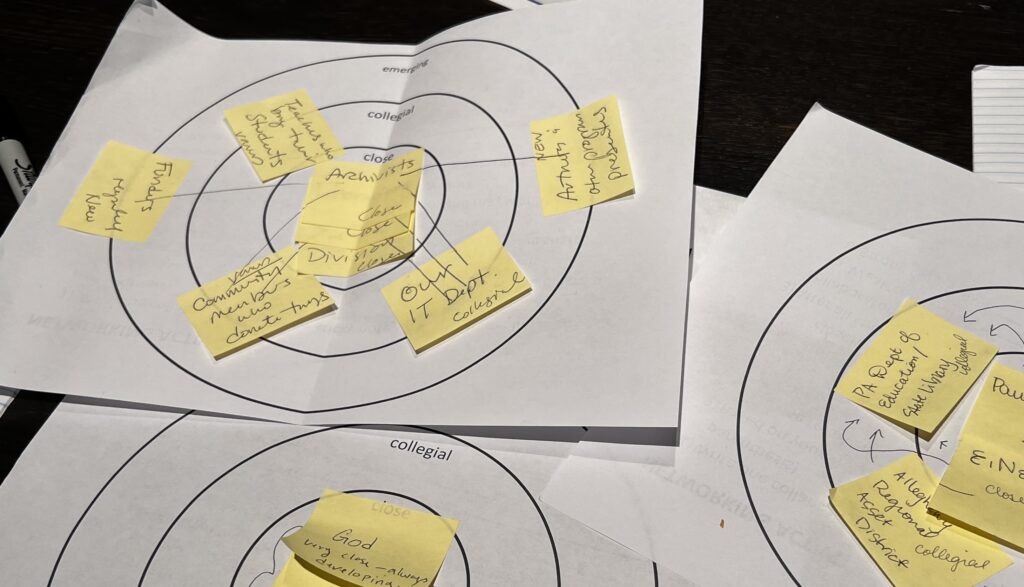
Although responses differed from group to group, Danifo said, there were many similarities. And while passion for the work and a sense of purpose were common, concerns about the work and its future were present in each of the groups as well. People shared their exhaustion from being spread too thin and just trying to survive, stress from being unexpectedly dragged into culture wars, difficulty in helping others process information – and misinformation – while trying to stay neutral, and grief over current events and directions and trends they see developing.
Asking open-ended questions allowed people to narrate their own experiences rather than check boxes. The focus throughout the project has been on the individual doing the work rather than the organization, and responses are being kept anonymous to ensure autonomy and freedom to respond with authenticity.
The next phase of the project is to analyze participants’ answers and combine their commentaries with the survey responses, allowing PA Humanities to understand the impact, motivations, challenges and connections of humanities workers and participants.
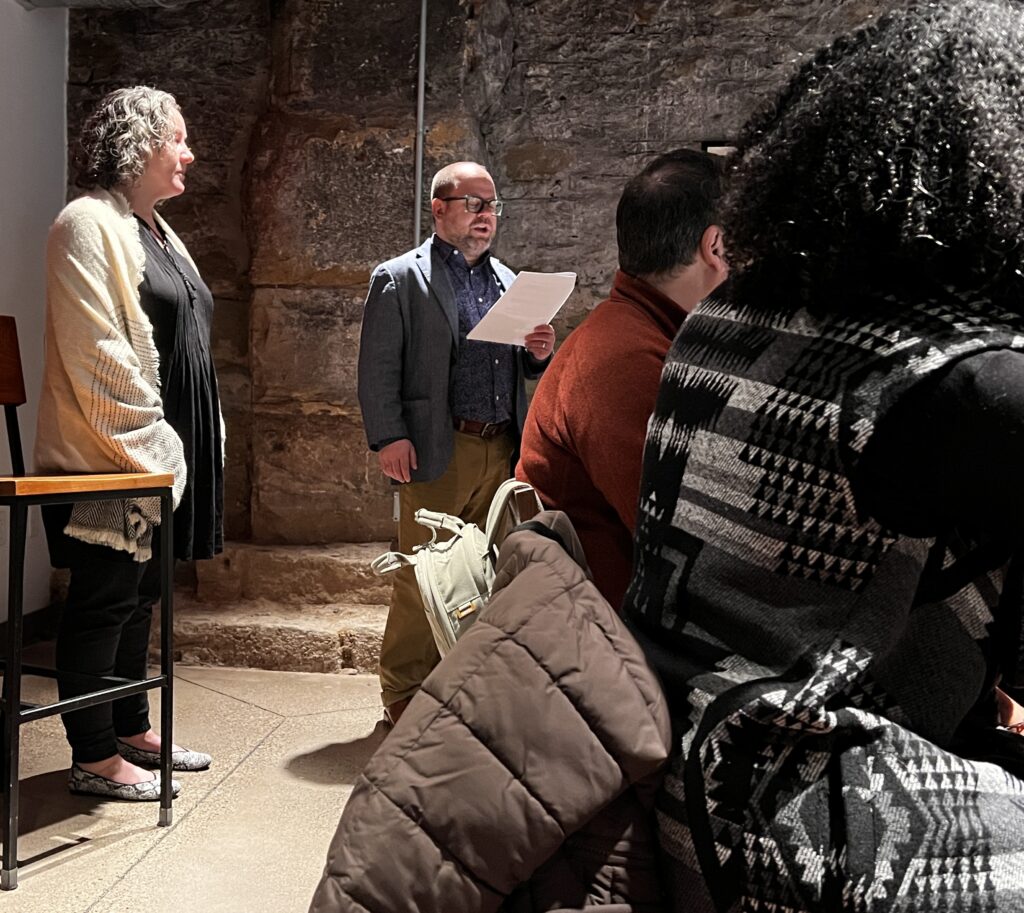
“The hundreds of extensive survey responses we received combined with rich focus group data provide a very detailed and compelling picture of humanities work across Pennsylvania,” said Andrew Zitcer, one of the project’s lead researchers and an associate professor at Drexel’s Antoinette Westphal College of Media Arts & Design. “We are able to use qualitative data analysis software to capture the breadth and depth of sentiments by organizing them by themes. As we develop our themes, we can track them across the entire body of data, looking for variation, alignment, and poignant examples. Then we are able to report out our data by theme, presenting the public with a coherent, impactful depiction of this treasure trove of responses by Pennsylvania’s humanities workers.”
After the data is analyzed, PA Humanities will go back to the participants to get their thoughts on the themes and pictures that emerge, make sure the findings feel accurate and find out how they’d like to see the information used.
“Hopefully when people look at it they’ll recognize their work and the work of their peers and communities, and the different themes and things they said are important,” Crosson said.
Along with a 27-member advisory board, researchers and PA Humanities staff are also in the midst of discussing ways to share our findings beyond the traditional spaces such as conferences and peer-reviewed journals, including identifying specific calls to action. Stay tuned!
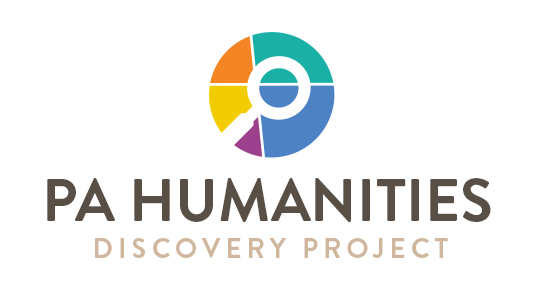
Funding for the PA Humanities Discovery Project comes from the National Endowment for the Humanities as part of the American Rescue Plan Act of 2021 and from the National Endowment for the Arts. To learn more visit PAHumanities.org/Discovery
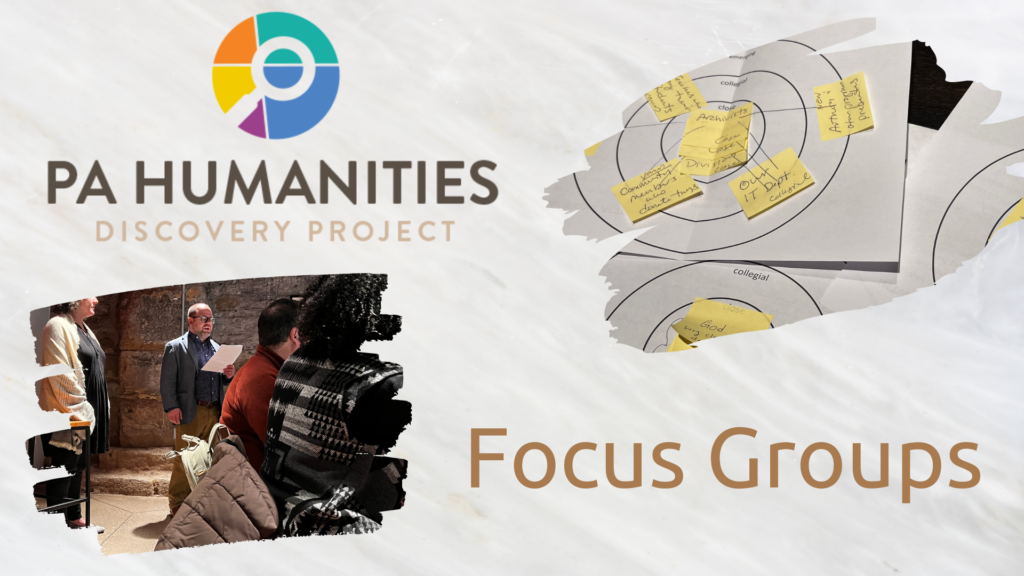
![[color – dark bg] PA SHARP FINAL FILES DB 72dpi [color - dark bg] PA SHARP FINAL FILES DB 72dpi](https://pahumanities.org/uploads/files/elementor/thumbs/color-dark-bg-PA-SHARP-FINAL-FILES-DB-72dpi-phgl7aimtfdpzt2rscvl43ksfv3asbbls19lsvuacw.jpg)
